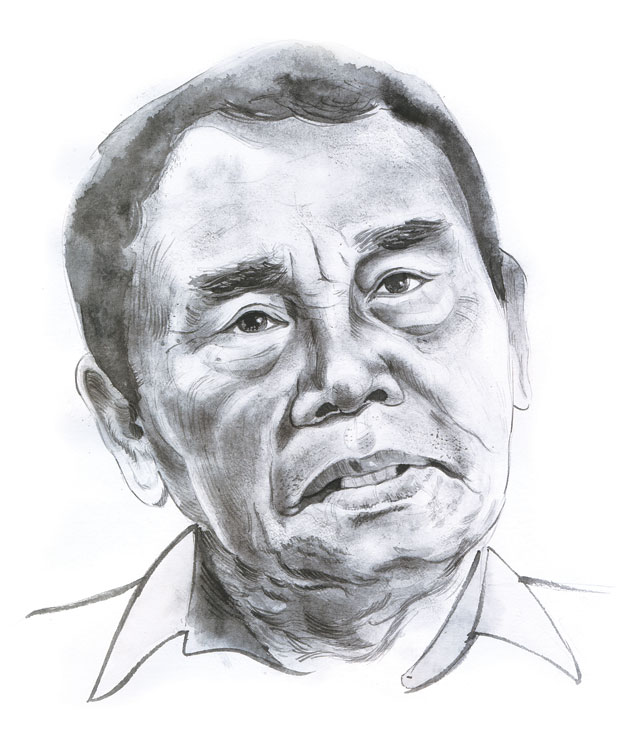Indonesia’s recently replaced counter-terrorism chief, Ansyaad Mbai, kept the lid on extremism for more than ten years, but will his methods be effective enough in to curb future threats?
By Daniel Besant
“It’s a tough job, but somebody has to do it,” is a common refrain, often sarcastically spouted when some buffoon is in a position of obvious luxury. Ansyaad Mbai, the former head of Indonesia’s National Counter-Terrorism Agency (BNPT), could utter these words, however, and people would nod in solemn approval.

From 2001 until last month, this no-nonsense, somewhat unsung hero fought the good fight against the terrorist threat. Despite being unable to thwart 2002’s deadly bombings in Bali, Mbai is widely praised for his efforts at keeping the lid on further atrocities being committed in the archipelago.
“Ansyaad Mbai really identifies with and understands the origin of violent Islamism and what is continuously feeding it,” said Professor Edgar Bellow of Neoma Business School. The Bali bombings were, in one way, an unwanted gift for Mbai, according to Bellow, as it gave him the chance to gain “great international experience” while working with Australian and US counter-terrorism forces in the aftermath of the attacks.
His background as a policeman, rather than in the military, made him an astute choice as the country emerged from years of dictatorship to become a flourishing democracy.
“He was definitely the best man for the job and came with excellent credentials,” said Bilveer Singh, a member of Singapore’s Council on Security and Cooperation Asia-Pacific. “The changed political culture required a non-military man with an intelligence background and an excellent track record. Ansyaad had these.”
Mbai is said to be a charming leader who rarely gets angry with subordinates. But, his saccharine temperament aside, it is his ability to interface between political leaders and security and intelligence commanders that proved to be one of his strongest assets.
While he did not completely snuff out the terrorist threat, he certainly succeeded in not letting terrorists set the agenda. To this end, Mbai was not afraid to get tough when necessary. During his time in office, nearly 100 suspects were “terminated”, as Singh put it.
However, the counter-terror chief was not always so hardheaded. “Equally noteworthy have been his efforts to bring [terror suspects] to court and prison,” Singh pointed out. “He introduced this softer approach strategy to reduce the number of radicals in Indonesia.”
Despite his best efforts, however, the threat is by no means over, as Mbai himself has pointed out. “For Indonesia, the growth of Isis is a big concern,” he told Khabar Southeast Asia, an online news source. “Before Isis, terrorism in Indonesia had been weakened. There was no real threat, because most of their networks had already been segregated and lacked funding and leadership.”
A recent report by the Jakarta-based Institute for Policy Analysis of Conflict revealed that a Malay-speaking unit comprised of Malaysian and Indonesian troops is fighting for Isis. This could become the spearhead for a force that would reach into the Philippines and Malaysia, as well as Indonesia.
If Indonesian fighters – who Bellow claims make up the largest contingent of foreigners operating with rebel forces in Iraq and Syria – return to their homeland, the concern is that they will light the touchpaper of extremism that has been festering in the background.
“Their return to Indonesia should be taken seriously,” said Bellow. “And the government can use recent international consensus to pass laws to protect innocent lives, the economy and Indonesia’s international image.”
If violent extremism does return to Indonesia, it would be harsh to point the finger at Mbai. Indonesia’s laws are weak, there is no legislation against hate speech, radical Muslims are not segregated in prisons and the media is still full of extreme views that remain unchecked.
“While this is not remedied, another 100 Ansyaads will still not solve the problem,” said Singh. “It is the weak and dysfunctional political system that is at fault.”
Keep reading:
“Behind every great man” – Presidential running mates are usually seen as necessary appendages. Can Jusuf Kalla, Indonesia’s vice-president-elect, buck the trend?

